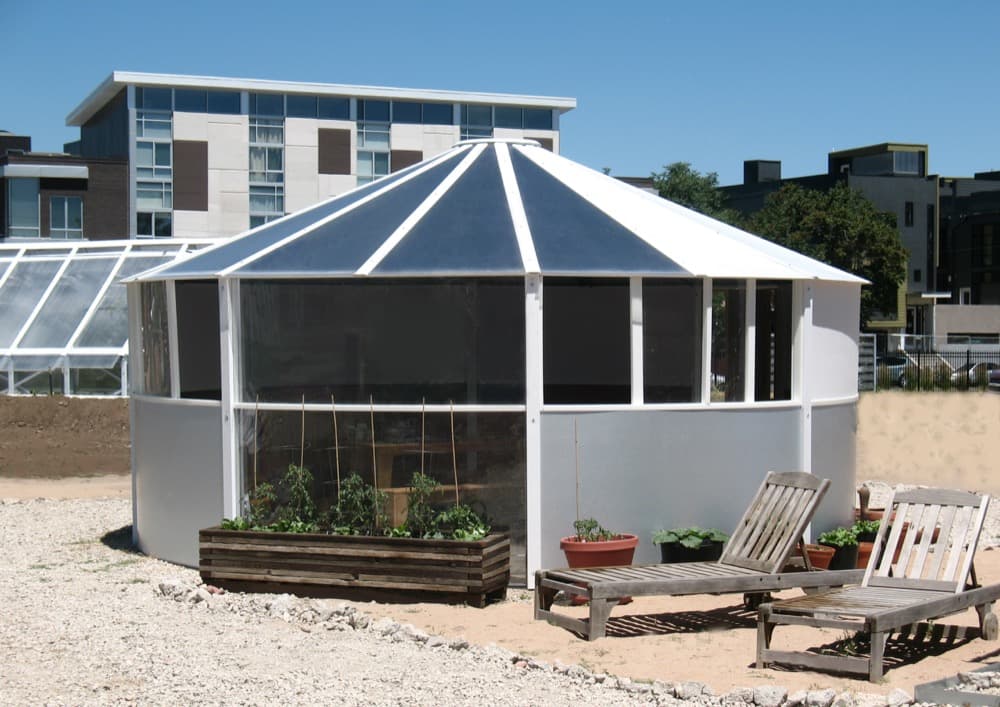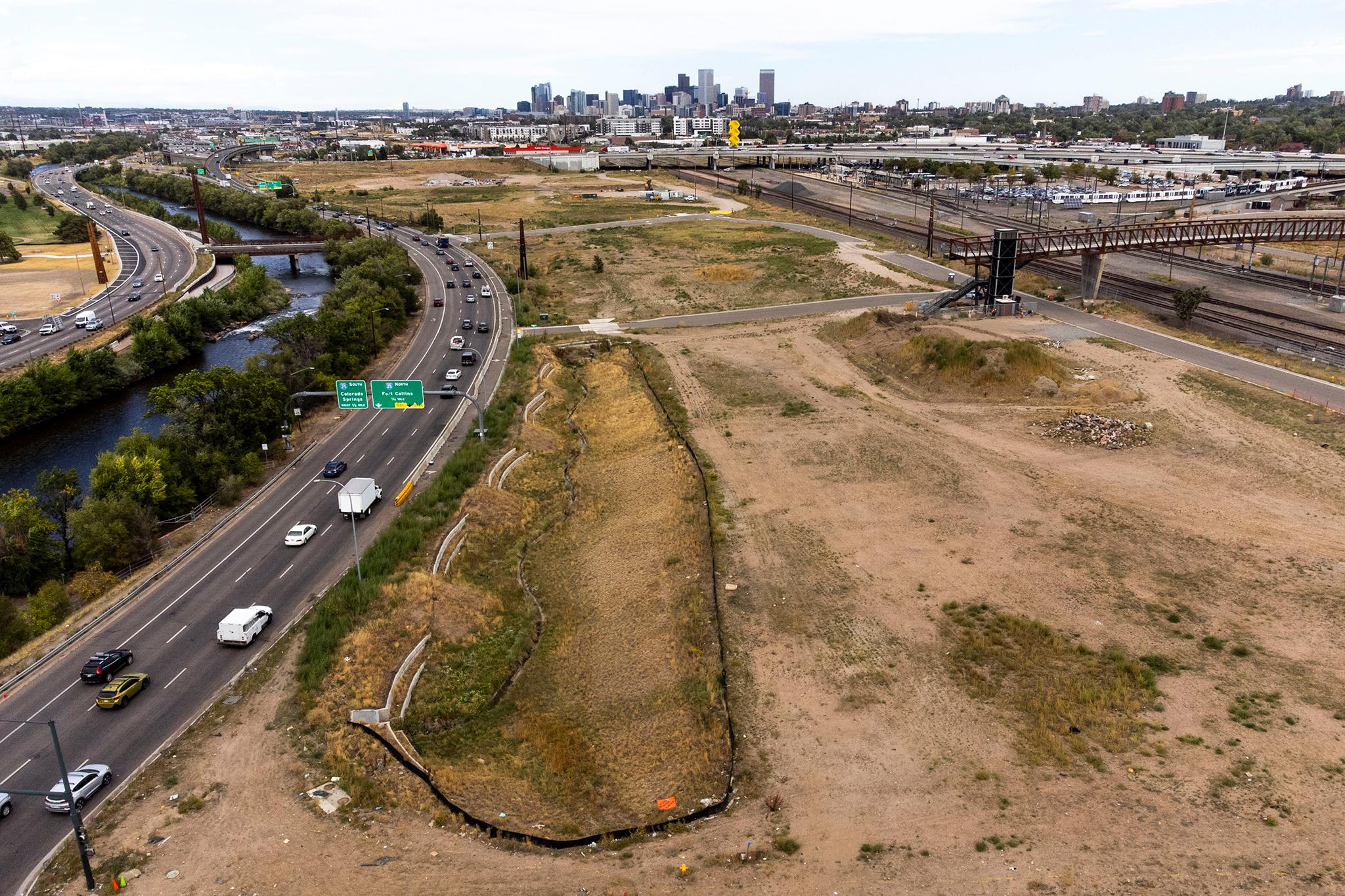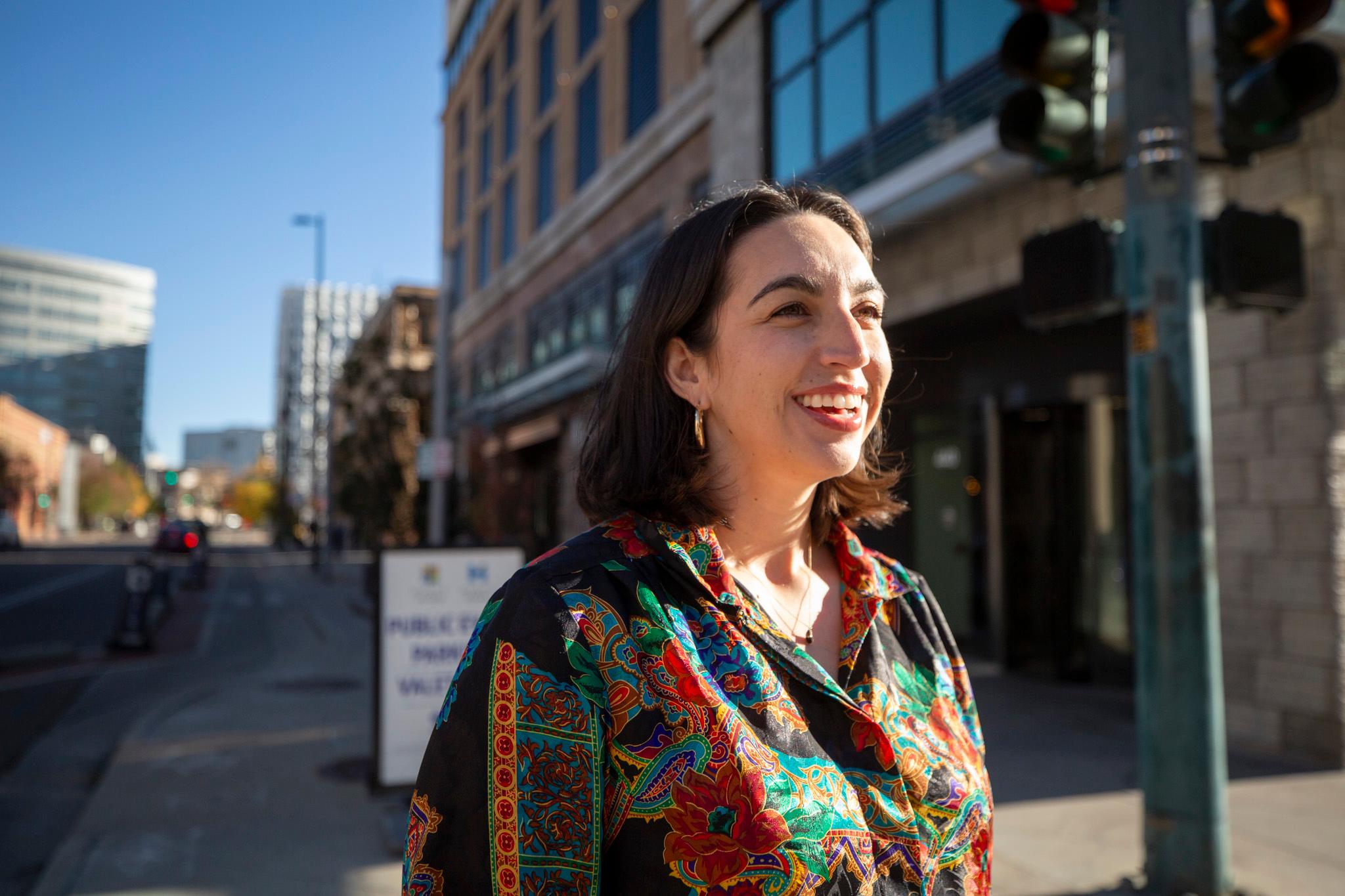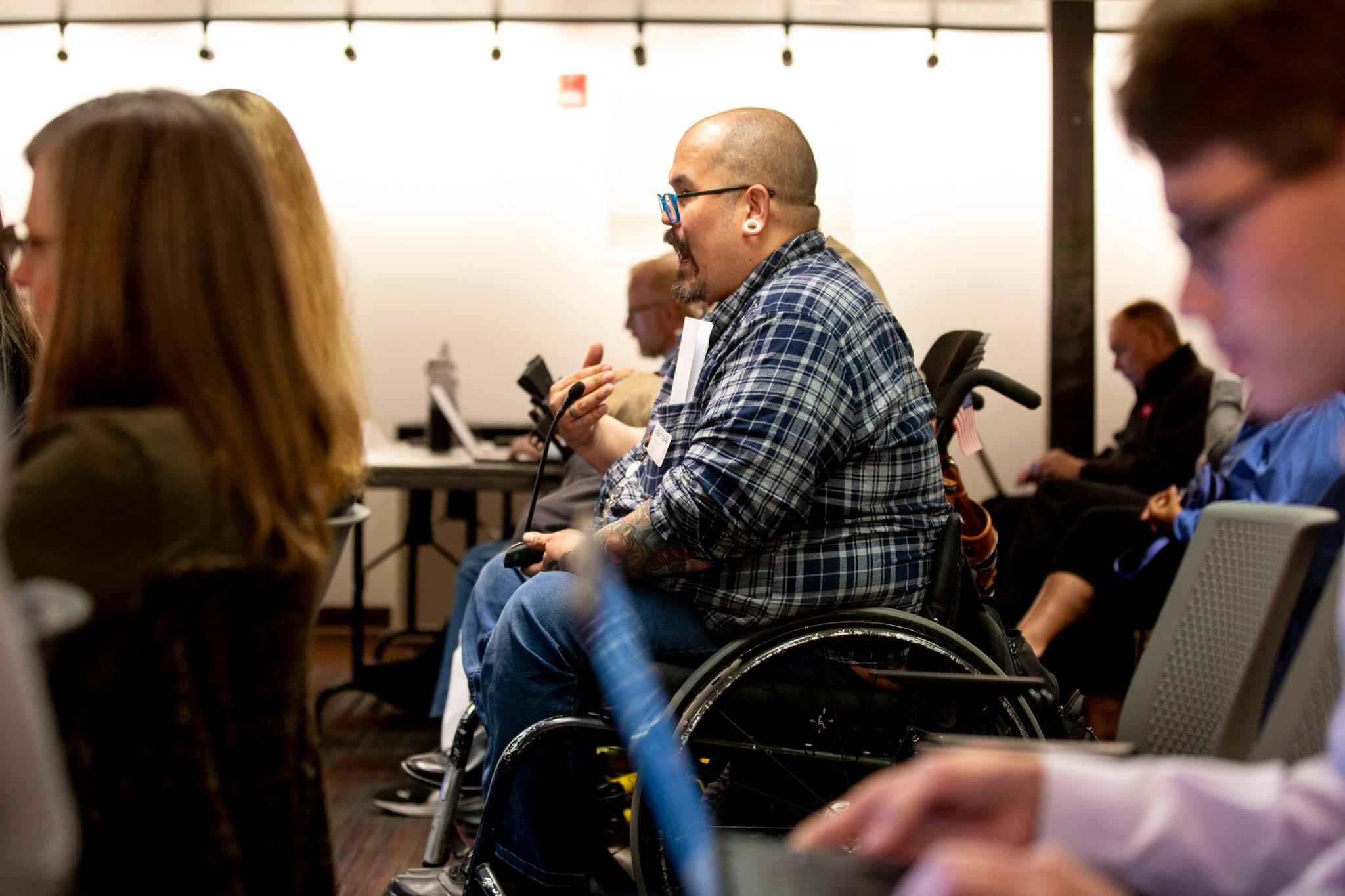
An alliance of nonprofit groups is deep in talks to deploy a village of yurts on a vacant lot in River North. Nothing's confirmed yet, but the organizers are a reputable bunch, and they say they have the tentative support of Mayor Michael Hancock and the property owners.
The Interfaith Alliance of Colorado is leading the charge as part of its communal Alternative Solutions Advocacy Project, which has recently drawn hundreds of people into public conversations about homelessness. The plan now is to temporarily deploy small, sturdy homes around the city, possibly starting with an as-yet undisclosed RiNo property owned by the Urban Land Conservancy.
The land is currently sitting vacant while ULC prepares to build permanent affordable housing. In the meantime, "they’re just empty plots of land for 6 to 12 to 18 months," said Nathan Hunt, program director of economic justice for the Interfaith Alliance.
The group is planning to lease circHouse yurts, which would be about 285 square feet and can be easily disassembled and moved.
"They look really nice. They’re extremely well built," Hunt said. "The idea is to place three or four of these on a property, and have three or four people in each one."
This kind of "tiny home" project is quickly gaining popularity as an alternative to traditional homeless shelters. Hunt wants to attract people who may avoid shelters for any number of reasons.
For example, he said:
- Residents would be able to access the village at any time, while shelters often have limited hours
- They would have room to store their belonging
- A smaller, communal setting could be more welcoming for people who fear the enclosed, crowded setting of a shelter
- Couples could stay together, rather than separating to go to male and female shelters
- People could be allowed to keep service animals or pets
- LGBTQ people might feel more safe in the village setting
Hunt did not disclose the exact site of the new project to Denverite, as the project isn't fully confirmed yet. ASAP hopes to build a privacy fence around the lot. The units would have electricity, heat and insulation, and the community would have chemical toilets or other off-grid toilets.
"It’s way more square footage than each person gets inside a shelter like Denver Rescue Mission," Hunt said. " ... You can put dividing walls on the inside and give people their own individual space."
A couple other sites besides RiNo also are in consideration.

Urban Land Conservancy hasn't confirmed that it will allow the project to proceed, but spokeswoman Christi Smith said it's an important and promising effort.
"We are talking with Nathan and with Interfaith about using one of our sites as a temporary solution," she said. "The city has talked to us on several occasions about using some of our properties to address homeless issues. We have not been able to implement anything to date, so these discussions are pretty exciting."
An earlier effort to house homeless people on a property off Peoria Street failed earlier this year due to neighborhood resistance and because the city couldn't support the services that would have been needed, she said.
"This particular site we feel really good about," Smith said. "It's not next to homes."
The group will look to similar communities in Portland and Seattle for inspiration. "What you do is you work with the residents in partnership with the community to develop community covenants, a code of conduct. People are then responsible for upholding these community rules," Hunt said.
He also thinks that the temporary nature -- perhaps just a few months at each site -- and small number of people will minimize neighbors' concerns.
Hunt said he has support from Mayor Michael Hancock.
"We met with Mayor Hancock and some of his staff last Monday evening and got verbal support from them on this plan," Hunt said.
Jenna Espinoza, a spokeswoman for Hancock, said that the administration has been "talking very consistently with that group to try to get their ideas around what that would look like."
City support could be important, as a project like this can require special permits and permissions.
"In the end, it will be a political decision that the Denver City Council will have to approve," said Edward Ryan, the Denver-based owner of the circHouse yurt-building company. "It’s kind of a new way of approaching an age-old problem."
But it's not a permanent solution, Hunt stressed.
"It would be more in the transitional housing category -- not a permanent home, not a permanent solution," Hunt said. "It is triage. We’re definitely advocates for doing some smart policy redesign for Denver’s system, to orient it toward a housing-first model."
Hey, what about that other tiny village?
St. Andrew's Episcopal Church is still exploring the option of building eight heated, insulated homes on its campus near Five Points. The church is still deciding whether and how it will do that.
If you want to keep up on this stuff, subscribe to our newsletter.










